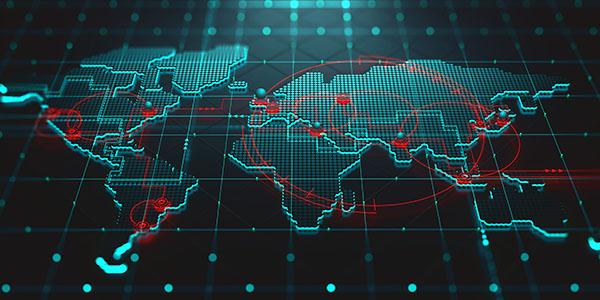Atlantic Council Releases Report on the Geopolitical Impacts of Emerging Technologies
A new study from the Atlantic Council’s Commission on the Geopolitical Impacts of New Technologies and Data warned that the technological revolution is continuing at such speed and enormity that it is reshaping societies and geopolitics across the globe, and “in novel and even unanticipated ways.” Researchers recommend that the United States take immediate steps to create specific strategies, governance and leadership roles; develop capabilities for a digital economy, quantum computing, supply chain resiliency, biomedical protections and space-related solutions; and strengthen partnerships with allies. The government should create an overall national and economic security technology strategy, which also balances privacy and civil liberties.
“The coming decade must address the sophisticated but potentially fragile systems that now connect people and nations, and incorporate resiliency as a necessary foundational pillar of modern life,” the report stated. “To maintain national and economic security and competitiveness in the global economy, the United States and its allies must continue to be preeminent in key technology areas, and take measures to ensure the trustworthiness and sustainability of the digital economy, the analog economy and their infrastructures.”
Amongst other measures, to secure data and communications, the United States should begin by strengthening the National Cyber Strategy Implementation Plan, developing a geopolitical cyber deterrence strategy for critical digital assets and hardening the security of commercial space capabilities. To advance security, the government should increase its oversight of supply chain assurance, organize data on critical resources, and with allied partners, evaluate the physical and digital information technology supply chain.
“Governments, especially democratic governments, must work to build and sustain the trust in the algorithms, infrastructures and systems that could underpin society,” the commission noted. “The world must now start to understand how technology and data interact with society and how to implement solutions that address these challenges and grasp these opportunities. Maintaining both economic and national security and resiliency requires new ways to develop and deploy critical and emerging technologies, cultivate the needed human capital, build trust in the digital fabric with which our world will be woven and establish norms for international cooperation.”
Regarding quantum computing, the commission recommended the creation of a national program for quantum information science research and development that would focus on emerging issues for digital economies. The United States should also establish an effort to accelerate the operationalization of quantum information science (QIS) technologies, and establish nationally held QIS infrastructure, the report emphasized.
In an effort to guard global health and wellness, the commission stated that the government should launch a global pandemic surveillance and warning system and develop “rapid” and automated treatments for unknown pathogens. It should also build a digital infrastructure that includes, among other systems, “emerging biosensors and autonomous sequencers deployed in water systems, air filtration systems and other public infrastructure—to integrate their diverse data for analysis and modeling with protocols for activating rapid analysis of new pathogens, including new strains of extant pathogens to evaluate ongoing vaccine efficacy,” the report directed.
The study, entitled Report of the Commission on the Geopolitical Impacts of New Technologies and Data, was released today by John Goodman and Teresa Carlson, the Atlantic Council commission’s co-chairs, and Executive Director David Bray. The commission also constructed an interactive website.
“Governments, industries and other stakeholders must work together to remain economically competitive, sustain social welfare and public safety, protect human rights and democratic processes, and preserve global peace and stability,” the report indicated.




Comments